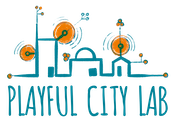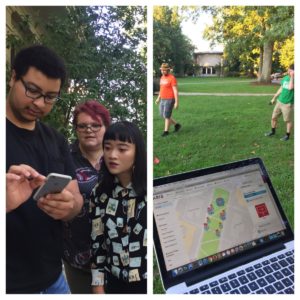
Playtesting some quick prototypes using the ARIS engine
This semester I’m piloting a new course called “Playful City: designing media for stronger neighborhoods and community impact.”
We have MA students from the AU Game Lab, as well as some advanced undergrads.
PREMISE: Play on urban streets can introduce neighbors, retell history, and deepen our sense of place. From PR to activism, the battle for neighborhood identity is increasingly waged with media. Some of the most innovative strategies are emerging with game-based activities and pervasive media.
Official description: Students will create original games and activities, with no programming required (just a passion for neighborhoods and media). This course will emphasize games as community strategy, especially by learning from activities we design.
• Prototyping will involve simple tools for embedding media in communities, from bus stops and text message clues, to oral history at listening booths.
• Playtesting will reflect on social implications from tourism and economic development, to race relations and gentrification, local history and community organizing.
In sum, this course will tap communication strategies for behavioral change, collective storytelling and building group identity. We will reflect on how games are different than other strategies, from allowing transgression to crossing generations and reclaiming space.
 If you’re one of the 15,000 educators heading to Denver later this month, join our session!
If you’re one of the 15,000 educators heading to Denver later this month, join our session!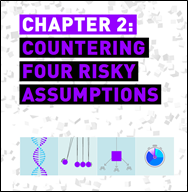

 At last, more on the participatory design behind the “Mobile Voices/
At last, more on the participatory design behind the “Mobile Voices/
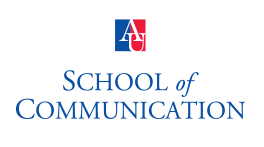 Know an aspiring scholar with an interest in games and communication theory? Here at the AU School of Communication we are looking for people with an interest in persuasive play, games that help journalists to communicate about complex policy issues, and much more. Send them our way.
Know an aspiring scholar with an interest in games and communication theory? Here at the AU School of Communication we are looking for people with an interest in persuasive play, games that help journalists to communicate about complex policy issues, and much more. Send them our way. The deadline to submit applications is December 15th, 2015!
The deadline to submit applications is December 15th, 2015!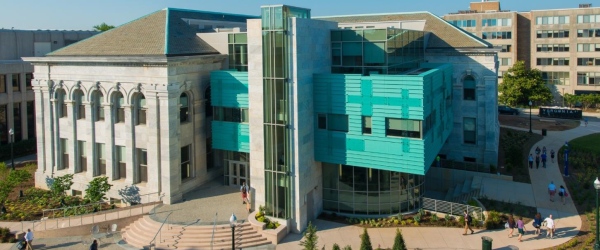
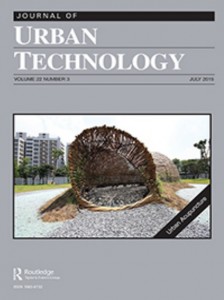 We have a fun paper out this month on “neighborhood acupuncture” in the Journal of Urban Technology. The broader
We have a fun paper out this month on “neighborhood acupuncture” in the Journal of Urban Technology. The broader 
